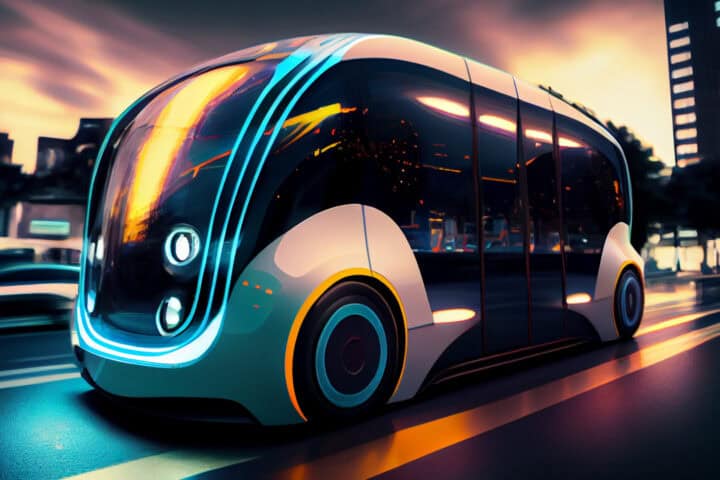San Mateo County, California, recently opposed a proposal by Waymo to deploy driverless taxis on its streets and highways. The county expressed concerns about safety and lack of communication from Waymo regarding its expansion plans. This move aligns with a resolution supporting Senate Bill 915, granting regional governments authority over autonomous vehicle usage. Supervisor David Canepa emphasized the need for local control to prevent potential risks, echoing sentiments from San Francisco’s experiences. Despite opposition, other areas remain optimistic about Waymo’s growth, with Mayor Pat Showalter of Mountain View expressing support pending CPUC decisions. The discourse underscores the evolving landscape of autonomous technology and the importance of collaboration between companies and local authorities.
San Mateo County’s Resistance: Balancing Safety Concerns with Waymo’s Driverless Taxis
Showalter said,” Depending on what is decided, we look forward to working with them.” ” Our police are excited to collaborate with them on their plans for law enforcement interaction.” A proposal to install robotic taxis on the Peninsula’s streets and highways is being resisted by San Mateo County.
The county objected to Waymo’s request to expand its operations outside of San Francisco in a letter to regulators. In San Francisco, Waymo and rival Cruise have run into safety issues, including many instances where autonomous cars slowed down traffic and hindered emergency personnel.
The county’s letter to the California Public Utilities Commission ( CPUC), which oversees autonomous vehicles across the state, stated last week that Waymo “failed to communicate in any depth or detail with county staff about the specifics of its proposal to expand its operations, largely unfettered, into San Mateo County.”
Waymo’s Expansion plans
The business, a division of Alphabet Inc., Google’s parent company, wants driverless cars to be permitted to pick up and drop off paid passengers in Sunnyvale, Santa Clara County, from north San Mateo County. In August of last year, robotaxis were initially permitted to operate in San Francisco.
County attorney John Nibbelin signed the protest letter, which was dated February 8—the deadline for submitting objections to Waymo’s expansion plans.
Waymo will be able to operate on the Peninsula in January thanks to approval from the Department of Motor Vehicles. Before their vehicles can leave San Francisco County limits, the company is waiting for a response from the CPUC, which could arrive at any time in the coming weeks. When it comes to where Waymo operates, local governments do not already have any decision-making authority.
The letter read,”We would have agreed that this expansion is of major public interest and requires much closer scrutiny and stakeholder awareness than the advice letter process can provide if Waymo had effectively engaged with County Staff regarding this matter.”
A request for comment was made, but Waymo did not respond right away.
Local Control Advocacy: San Mateo County’s Support for Senate Bill 915 and Regulation Authority
A resolution supporting Senate Bill 915, which would give regional governments the power to allow or forbid the use of autonomous cars on their roads, was likewise unanimously approved by the county’s Board of Supervisors this week. State Sen. Dave Cortese, a Democrat from San Jose, is the author of the bill, which would also allow cities and counties to establish regional regulations like caps on the number of vehicles allowed to operate in an area or greatest fares.
The resolution was introduced by San Mateo County Supervisor David Canepa, who was vehemently opposed to Waymo’s expansion plans.
He stated that it is “time to end Waymo’s unrestricted access to our highways and roads in the Silicon Valley. These decisions are currently being made by two state agencies that have n’t meaningfully interacted with county or city officials who are best-versed in local roads.” Canepa continued “We do not want to see the disasters that AVs have brought about in San Francisco, such as last week when a Waymo struck an cyclist. ” We need native control to prevent these risky scenarios in Silicon Valley.”
In October, the DMV informed Cruise that it was no more able to run its taxis in the city, calling them “unreasonable risks to the public.”
A Waymo vehicle that was being celebrated by Lunar New Year revelers in San Francisco’s Chinatown on Jackson Street near Grant Avenue was destroyed and set on fire next weekend.
Yet, some local government representatives outside of San Mateo County are more upbeat about the anticipated growth of Waymo.
Optimism Amidst Challenges: Mountain View’s Stance on Waymo’s Expansion and Potential Solutions
Mayor Pat Showalter stated that the local government, which has a close relationship with Waymo and its parent company, would support any decision the CPUC makes in Mountain View, the southernmost point of the Peninsula in Santa Clara County and the location of way Mo’s headquarters. The governor appoints the five commissioners, who are then confirmed by the state Senate.
If automatic vehicles were permitted on the roads, the mayor of Mountain View expressed her confidence that the local government and police would be able to address safety issues and regulation.
Showalter said the city would prefer to take a “wait and see” approach, despite the fact that she is aware of growing opposition among her northeastern neighbors to driverless vehicles.
Showalter also stated “I’m convinced that the business, Waymo, will resolve the issues. You cannot decide what has not already occurred.”










